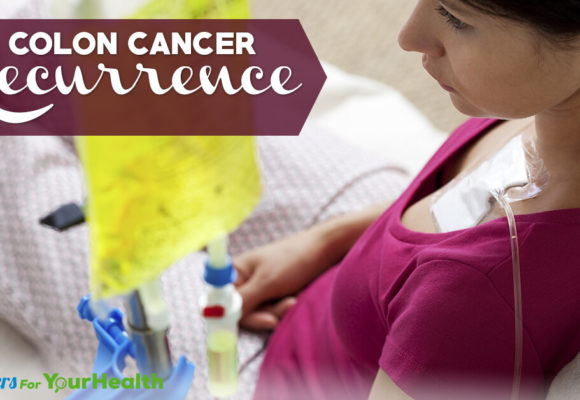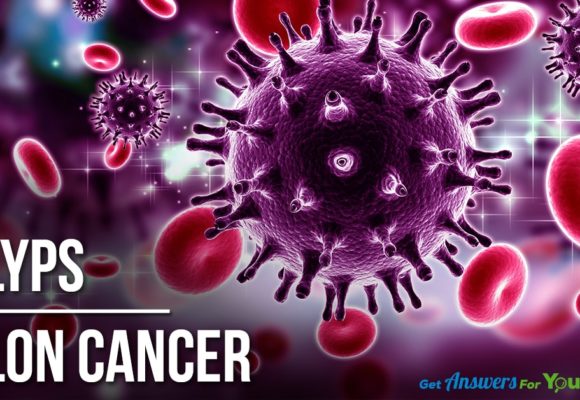1) Grab a FREE copy (Value $14.95) of one of my books Thyroid Symptom Overload
Just pay shipping $7.95 for any US orders. Or, if you want to pay full price plus shipping, order from Amazon :)
2) Take our Thyroid Quiz today and find out what "Thyroid Type" you have
This quiz will help you quickly discover where your symptoms are stemming from.
3) Join Our Thyroid Advocate Membership Site - Natural Thyroid Academy
FREE for a limited time. No credit card required.
4) Work with me and my team privately
Schedule your FREE 15 minute phone consultation and we can find out the best way to help you specifically.
Colon cancer is the third most common cancer in the United States. It is a fact that with advancements in medicine, new and efficient treatment methods are now available. Despite efficacious interventions, cancer is the leading cause of death if it progresses to the last stage. It is always best to do everything you can to prevent colon cancer. Below are some things you can do to take a proactive approach.
Go Through Screenings For Colon Cancer:
Screenings are performed to identify the presence of a possible yet-to-diagnose disease that does not exhibit symptoms at that time. In other words, screenings include medical tests that are done before the signs and symptoms of the particular disease develop.
- Identification Of Polyps:
The importance of screening for any disease cannot be avoided, especially when it comes to colon cancer. Getting a regular screening from your primary doctor is the best way to prevent the colon cancer.
Screening helps identify the early abnormal growths – polyps, which can turn into malignancy (cancer) in the future. As polyps do not show symptoms in 95% of cases, it is difficult to diagnose them most of the times. With the help of a screening, not only the polyps are diagnosed early, but typically are successfully removed.
- Identification Of Cancer At Early Stage:
Even if the cancer has already developed, a screening has the advantage of diagnosing it at early stages. At initial stages of colon cancer, it is much easier to care for. With the advancement of cancer, it gets difficult to completely eliminate the disease. Also, the survival rate decreases successively with the advancement of cancer. To see the survival rate in different stages of colon cancer, click here. (hyperlink of colon cancer and survival rate).
- Screening Methods:
There are many screening options. They include tests, as well as imaging methods.
- Two of the most common tests (Fecal Occult Blood Test / Fecal Immunochemical Test) are done. These tests look for the hidden blood in the stool, that is a common sign of colon cancer. If these tests find something suspicious, colonoscopy is done to further investigate the problem.
- With the help of colonoscopy, your doctor can directly view the inside of colon (with the help of high resolution camera and high intensity light at the front of the long tube). In case, any abnormal growth is seen like the polyps, it is removed during the test. Colonoscopy is generally done once every few years.
- Another way to do screening for colon cancer is the use of flexible sigmoidoscopy. That is similar to colonoscopy but views the lower part of intestine i.e. sigmoid.
- Virtual colonoscopy is another way to screen colon cancer. In this procedure, a small tube is inserted into the intestine. The part of intestine is gently inflated with the air. This type of CT scan creates a 3-D image of the inside of colon. Any suspicious growth is then investigated.
- Consult your primary physician or gastroenterologist for the better understanding of screenings and colon cancer.
Maintain A Healthy Weight:
Obesity is one of the strongest risk factors for all types of cancer, including colon cancer. After smoking, nothing increases the risk of colon cancer as much as the obesity does. Maintaining an ideal weight is an important measure you can take to decrease the likeliness of having cancer.
- Standard Weight:
The standard ideal weight differs from one individual to another. This is because every person’s body is different. The standard BMI is an easy tool to measure the mass of body interrelating both the aspects; height and weight. Ideally, BMI of a person should fall between 18.5 – 24.9, while 25 and greater BMI is considered overweight and obese. However, some people have broad structures or they are prone to gain weight naturally.
- Weight Loss:
If you have put on weight, the first goal is to stop gaining weight. Then progressively, you need to reduce the extra pounds of weight. Never adopt solely dieting to lower your weight. Rather, you can include exercise and healthy eating habits in your plan of how to reduce weight. Consult your primary physician or dietician to help you follow healthy ways to lessen your weight.
Perform Exercise And Encourage Physical Activity:
The beauty of our body is its quality of adaptation. The more an organ or a part is used, the more it modifies itself to perform the function effectively. This is what exercise accomplishes. Also, with the help of exercise, our mental health improves. Exercise boosts our minds at the same time, while improving the physical fitness.
- Exercise And Colon Cancer:
Exercise helps prevent many serious diseases, including colon cancer. A healthy person is less likely to have colon cancer. Even after having colon cancer, exercise plays a crucial role in overcoming the potential side effects of the colon cancer and its treatment. Also, exercise is associated with the arrestment of the advancement of the colon cancer.
- How Much Exercise Is Good For You:
Too much of exercise is not good for you just like too little exercise. Planning regular activity of 30 minutes with exercise has the most beneficial outcomes.
Little physical activity is better than no activity. If you are not accustomed to performing exercise on daily basis, always start with low intensity and duration. Then progressively increase the determinants of exercise. Choose the activity that you enjoy, like jogging, swimming, brisk walking, dancing etc.
- Perform moderate exercise and do not stress your tissues by performing high intensity exercise. Also, increasing intensity of exercise is not related to that much overall health benefits as increasing the duration of exercise itself. Overall endurance increases with the engagement in exercise for long durations. In turn, this decreases the chances of colon cancer better than building the muscle mass by high intensity exercise training. Talk to your doctor, before initiating an exercise program.
Consume Healthy Diet:
A healthy diet significantly prevents colon cancer and an unhealthy diet does the opposite. Getting enough nutrients and vitamins are beneficial for your colon.
- Limit Red Meat:
Eating red meat increases the chances of having colon cancer. Eating processed meat increases even more. To prevent colon cancer, limit the red meat to 3 servings a week. Lesser is even more beneficial.
- Encourage Balanced Diet:
A healthy diet is the one that includes a variety of healthy foods. Consuming fruits, vegetables and whole grains are beneficial in reducing the risk of colon cancer. The vitamins, minerals, fibers and antioxidants that are contained in these foods, greatly help. Choose a variety of fruits and vegetables to get an array of nutrients.
- Calcium And Vitamin D:
Getting enough calcium and vitamin D greatly helps to prevent colon cancer. The optimal range of calcium and vitamin D is 1000 – 1200 milligrams and 1000 international units per day, respectively. Some groups recommend special testing for vitamin D and calcium to identify the population having increased risk for colon cancer.
Quit smoking:
Smoking is a strong risk factor responsible for the increased incidence of major diseases. Apart from the smoking being causative of serious heart diseases, lung diseases and stroke, it is also the major contributing factor in causing more than 14 cancers, including colon cancer. Quitting smoking is the single best thing you can do that has enormous health related benefits. The advantageous outcomes will start after your last smoke.
If you are having difficulty to quit smoking, you can consult your doctor. There are many ways that help the person quit smoking. Talking to the doctor, in fact, double your chances of success.
Limit Alcohol Consumption:
Alcohol, if consumed moderately, has heart related benefits. However, even at low levels, it increases the chances of having cancer, including colon cancer. Alcohol has other numerous adverse effects on health as well. If you don’t drink, there aren’t any good reasons to start. Nevertheless, if you choose drink alcohol, limit the consumption to moderate levels. It is no more than a drink per day for women, and two drinks per day for men. Avoid drinking heavily.
Conclusion:
It is important to prevent colon cancer or at least identify it early before the advancement of cancer. Maintaining ideal weight by having healthy diet and performing regular exercise helps prevent colon cancer. Avoiding alcohol consumption and smoking also directly reduce the risk rate associated with colon cancer. Screenings should be done regularly. That is the most important step to take in order to lower the complications of advancement of disease. It is very important for any type of cancer, but is really crucial in the case of colon cancer as generally the symptoms of colon cancer develop once the disease has already progressed to an advanced stage.
References:
https://siteman.wustl.edu/prevention/take-proactive-control/8-ways-to-prevent-colon-cancer/
http://www.mayoclinic.org/diseases-conditions/colon-cancer/manage/ptc-20188388
http://www.webmd.com/colorectal-cancer/guide/eating-prevent-cancer#1
https://www.cancer.org/cancer/colon-rectal-cancer/causes-risks-prevention/prevention.html
http://stopcoloncancernow.com/colon-cancer-prevention/prevention








